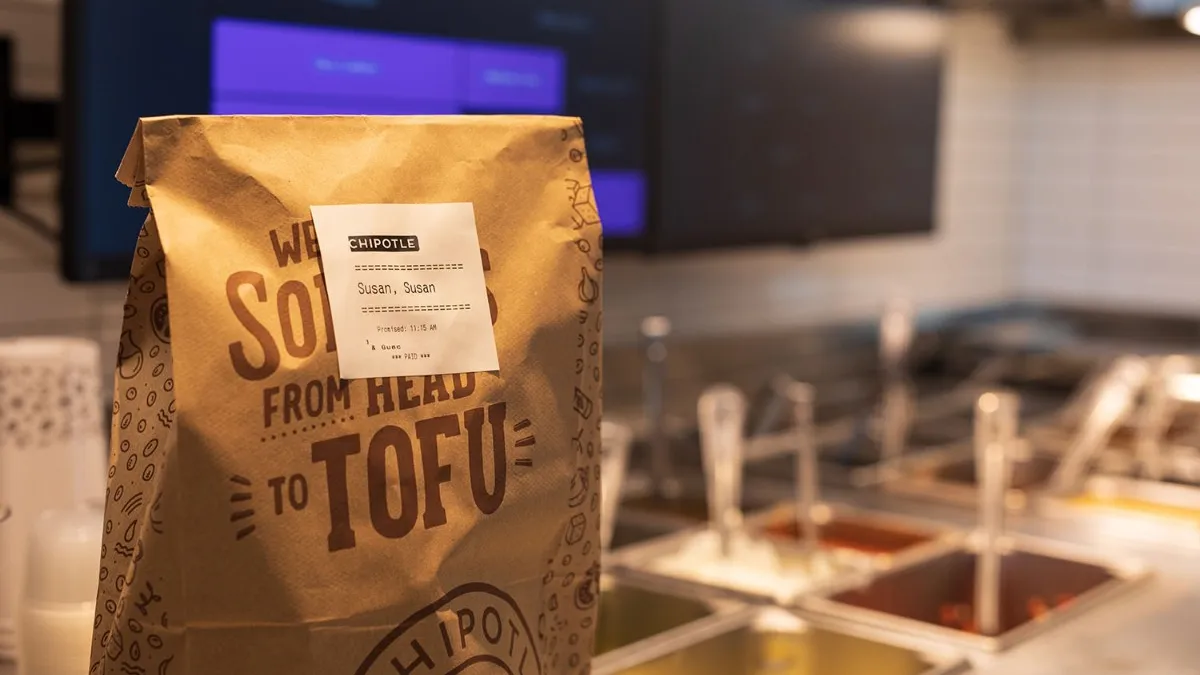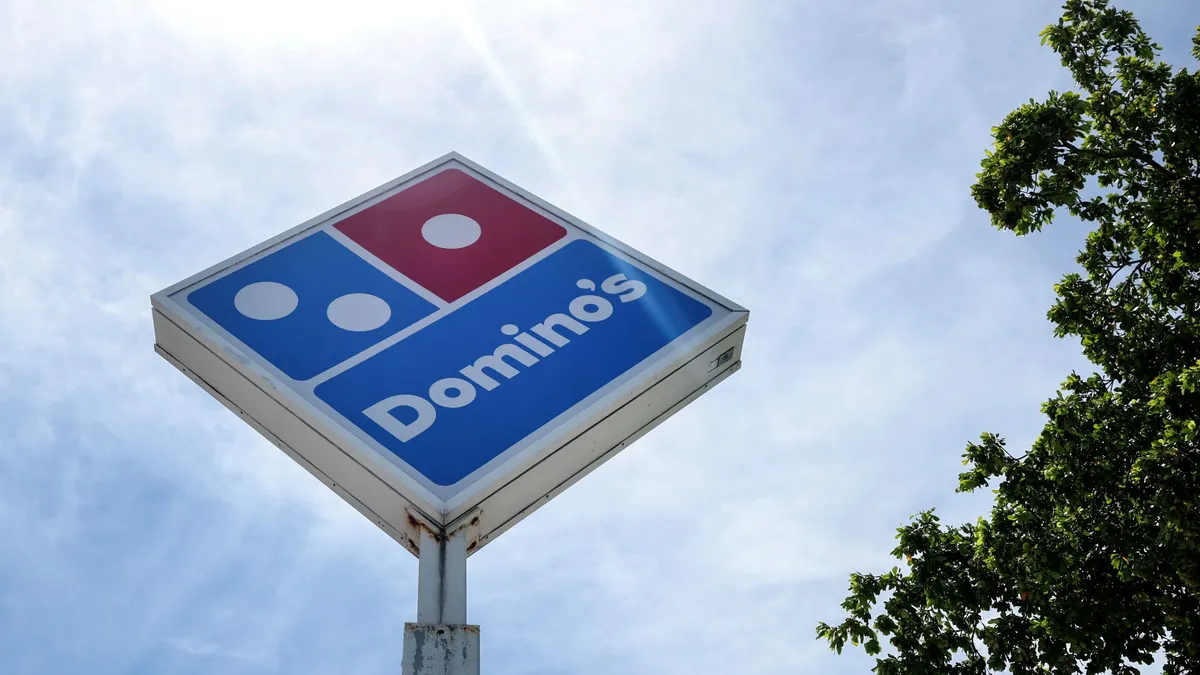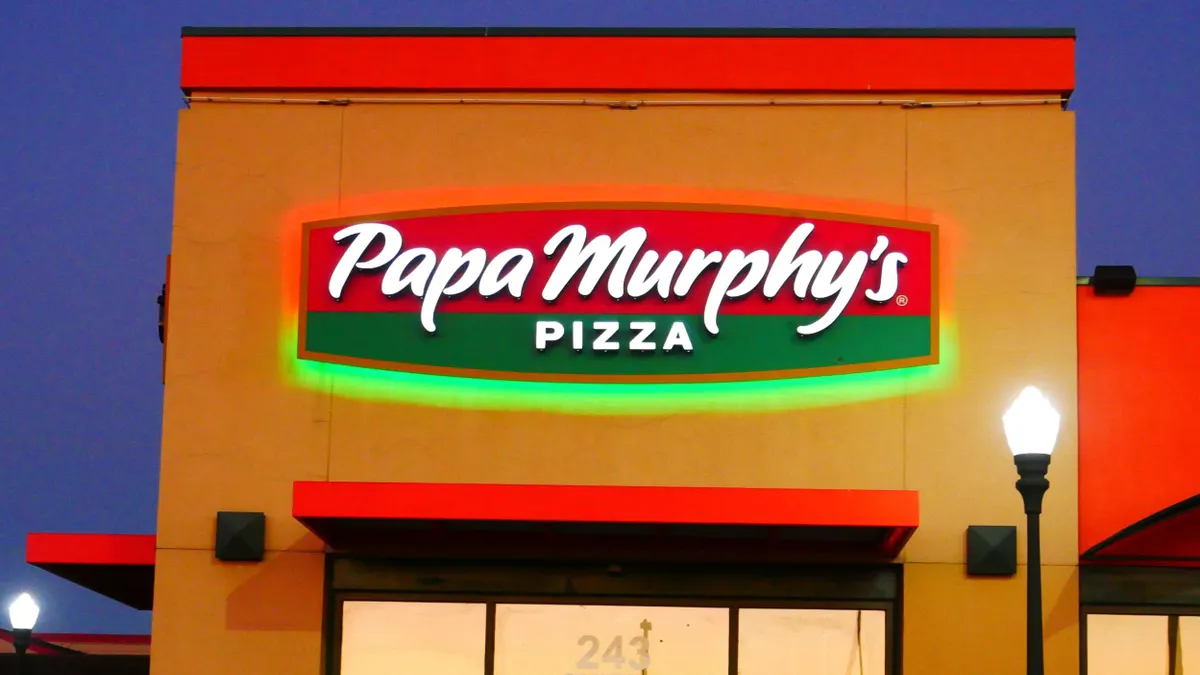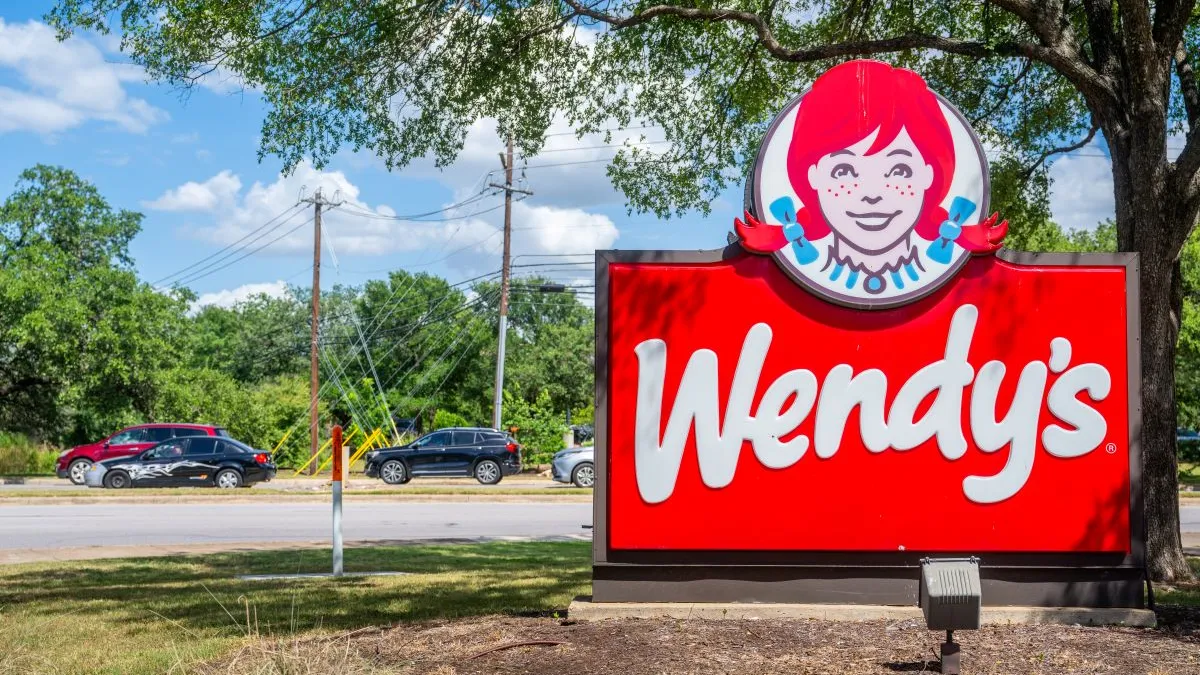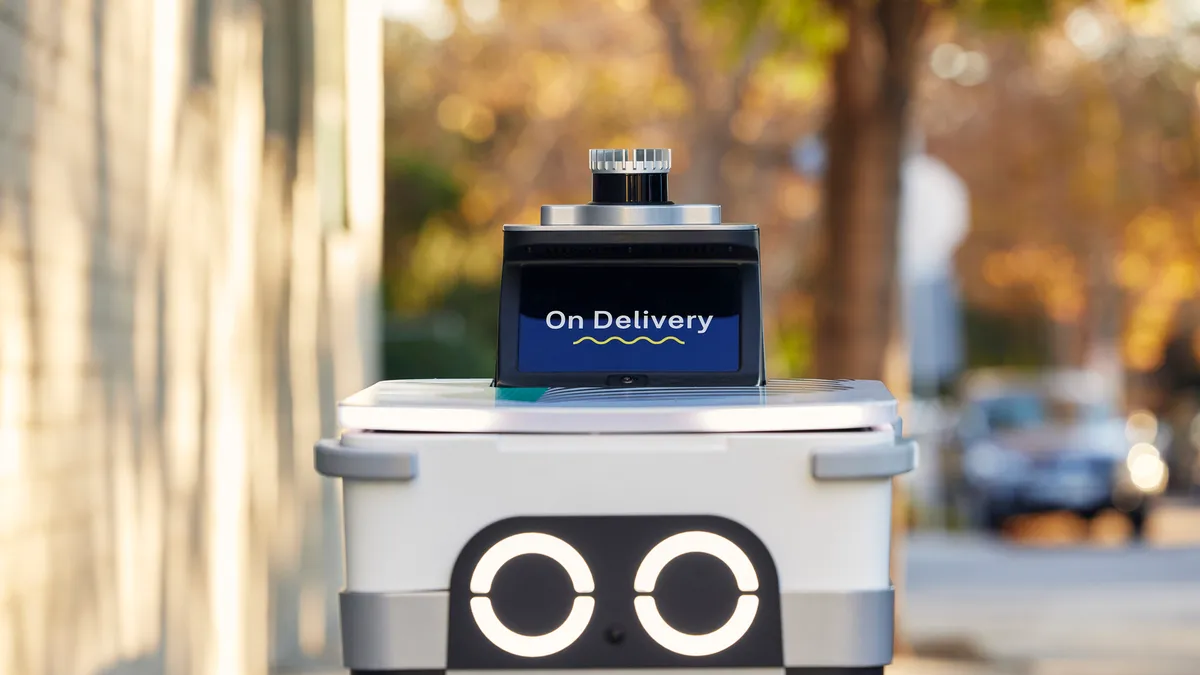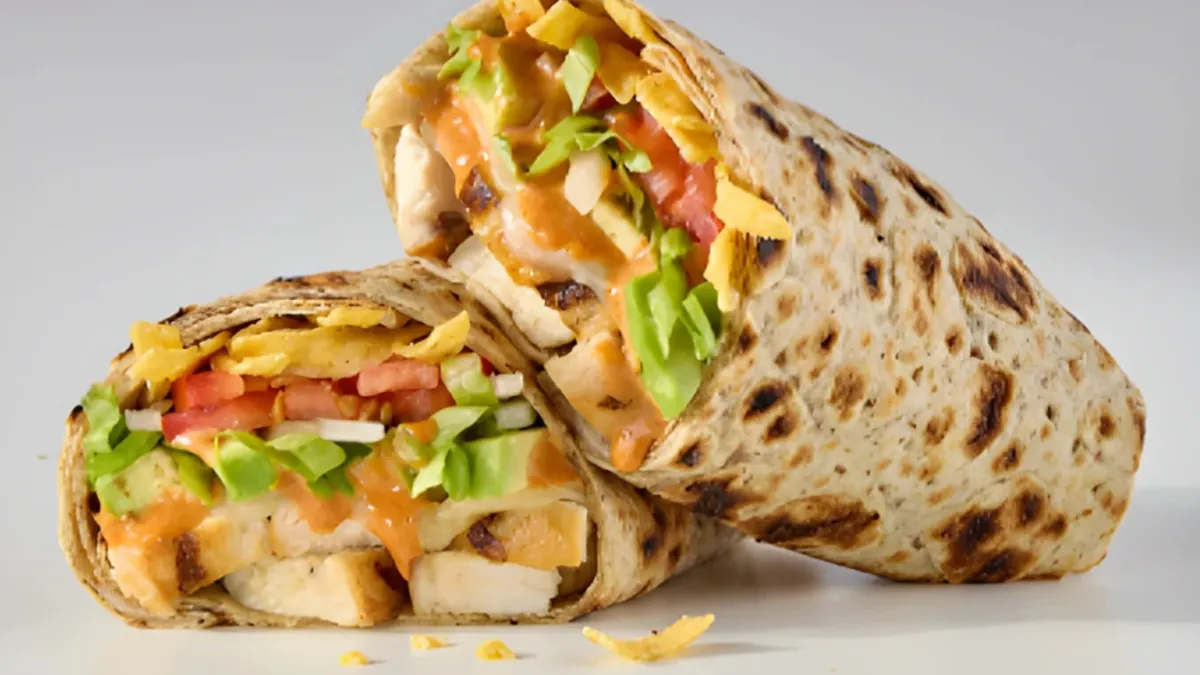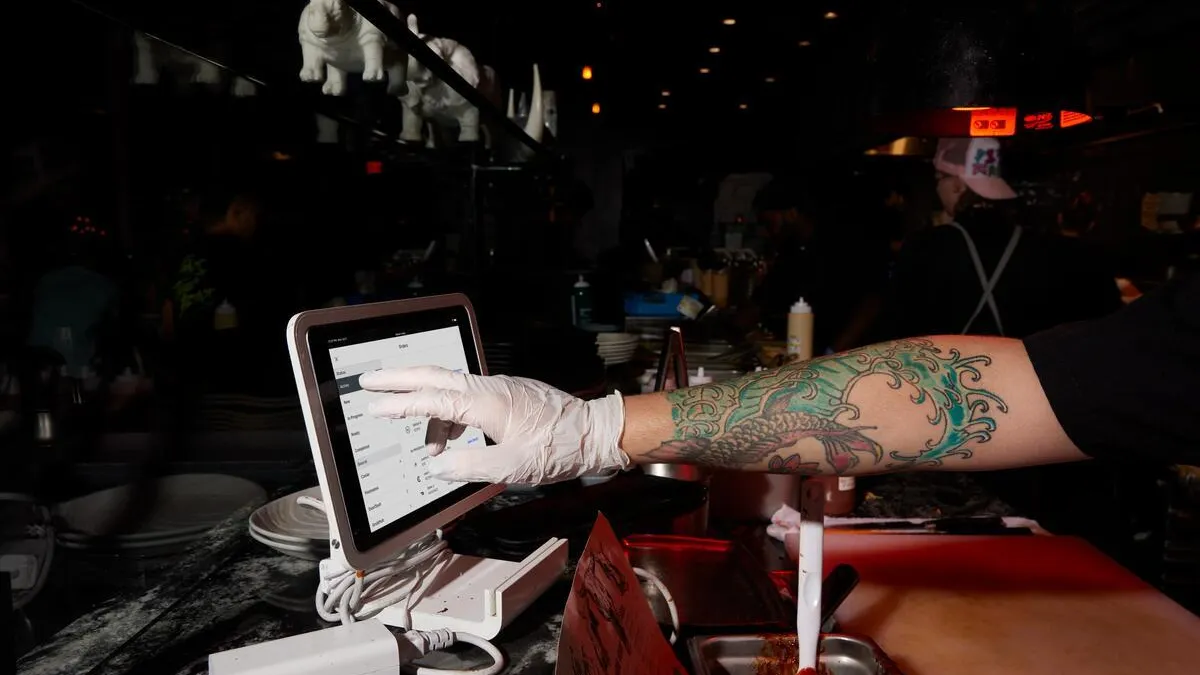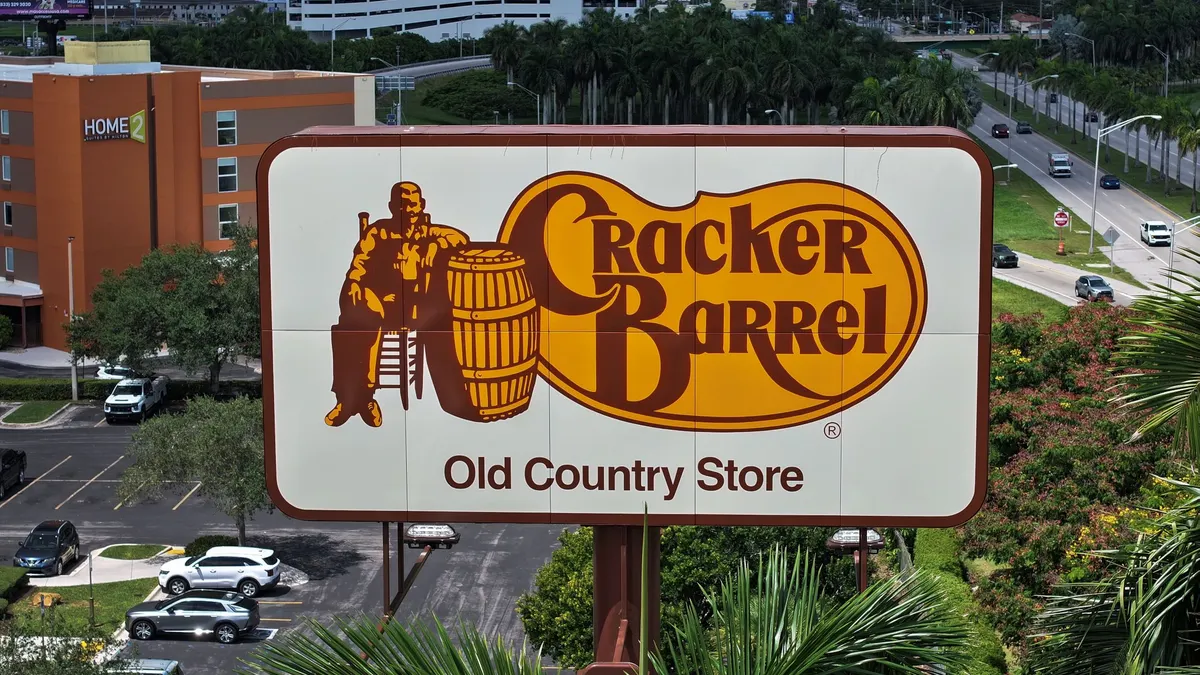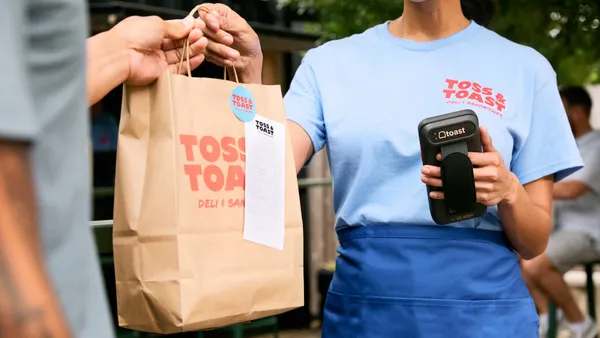Fast-casual chain Chipotle's recent success has continued unabated. In the first quarter of 2021, it reported $1.7 billion in revenue, a 23.4% year-over-year jump. That growth is thanks in large part to its robust digital channels, which, in turn, stems from the company's early investment.
"Chipotle has been making significant investments in digital over the last few years, and that has paid off in a big way," the brand's CFO, Jack Hartung, told CFO Dive in June. "You've seen our results. In April, we had digital sales as high as 70%. That was up from 20%, pre-COVID. Three or four years ago, it was only 5% of our business. Companies without a digital offering are struggling a lot, lot, lot more."
As their dining rooms begin reopening across the country — 92% of Chipotle locations offer limited capacity on-premise dining, CEO Brian Niccol said Wednesday — that attention to digital sales isn't taking a back seat.
Digital sales officially account for over 50% of the company's mix, up from 49% during Q4 2020. In the first quarter of 2021, Chipotle shared in its earnings report Wednesday, its comparable sales grew 17.2%, driven by 133.9% growth in digital sales.
The company's digital efforts have grown its rewards members to 21 million, more than double its 8.5 million members in 2019. Executives use this group as a database for gathering information about its frequent customers and reduce churn, Restaurant Dive reported.
Hartung, on the call, also discussed how Chipotle would handle a national minimum wage that approaches, and even potentially surpasses, $15. The company currently pays an average of $13 to its hourly employees; not far off, he said.
"But let's say, for example, that there's going to be an across-the-board 10% increase in our wages," he said. "To offset that [would take] a 2% to 3% menu price increase. That’s very, very manageable."
A significant increase in inflation due to a heightened federal minimum wage, Hartung says, would prompt all businesses in the restaurant industry pass those costs along to the customer. And in that environment, he believes, because of its current wages, Chipotle is in a "much, much" better position to do so.
Hartung is proud the company has been, financially, in a position to make the right investments all along the way. "A lot of companies weren't so fortunate," he said.
"For a while there, our sales fell 35%; it was pretty dramatic. But because we were in a strong financial position, we could be responsible and prudent throughout, and made all the right investments at the right time."
Chipotle's strong balance sheet has enabled it to keep its stores open and its workers employed, even if individual locations weren’t making substantial sales, Hartung said.
"I'm really proud, from a financial standpoint, we didn’t have to deprioritize important things," Hartung said. "I would've felt awful if we had to stop hiring or lay off our development team."
Sustainable growth, sustainable culture
When it comes to discussions about minimum wage, sustainability and social governance is not far behind. Last week, Chipotle released its annual sustainability report, in which it shared a 51% waste diversion rate. Niccol said sustainability is one of the brand's top strategic priorities. It's one of Hartung's too; Chipotle's supply chain and development teams report directly to him.
"We really started this idea of sourcing more sustainable ingredients in the early 2000s, before it was fashionable," Hartung told CFO Dive in an interview Friday. "As CFO, I spent a lot of time on farms, because I wanted to understand what sustainable agriculture and proper animal husbandry looks like. Do I need to do that in my role as CFO? Of course not, but it really inspired me, and it made it more important to me that our business model supported sustainable farming and produce."
In its sustainability report, Chipotle committed $5 million to young farmers over five years, and outlined a goal to purchase over 37 million pounds of produce from local farmers through its Local Growers Program this year.
"You've seen all the things we're doing to support farmers," Hartung said. "A lot of that comes down to actually spending time with them. If I sat in my office and just looked at spreadsheets, it might've been easy to say, 'This is too expensive, we're not going to do it.' When you spend time with the animals and the farmers, you see the difference, and you can't help but [want to] find efficiencies elsewhere."



